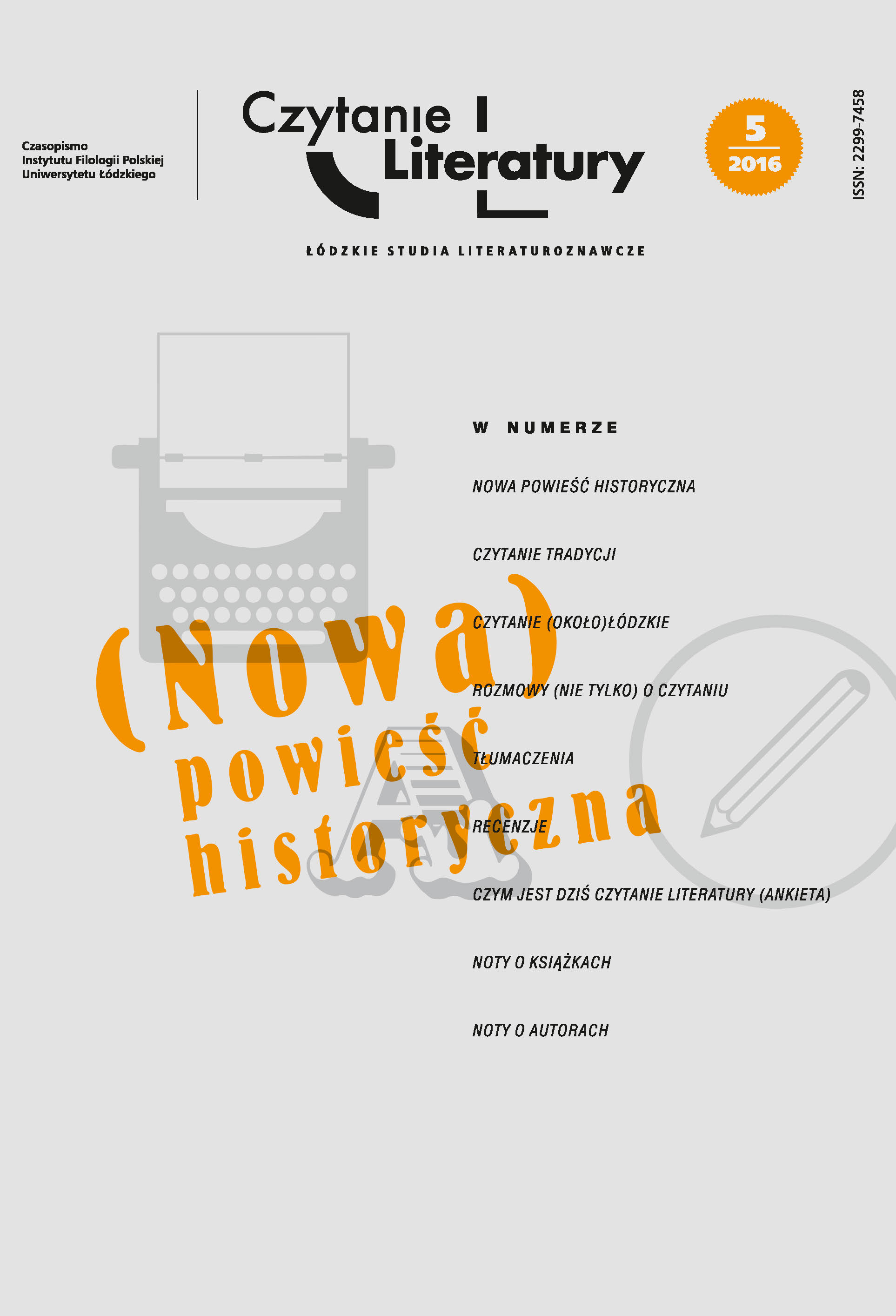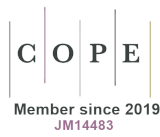"The Magician’s Wife" in view of the colonisation of Algeria. A historical novel according to Brian Moore
DOI:
https://doi.org/10.18778/2299-7458.05.08Keywords:
historical novel, The Magician’s WifeAbstract
The article analyses the last work by Brian Moore, entitled The Magician’s Wife (English edition: 1997, Polish edition: 2000) as a historical novel. The Belfast-born writer who became a Canadian citizen and died in the US, had an ‘Algerian episode’ in his life. In his last years, most plausibly inspired by the historical source entitled Confidences d’un prestidigitateur and authored by Robert Houdin, Moore created an unofficial version of events which were supposed to have contributed to the final conquest of Algeria by the French. The visit that the recognised French illusionist paid to Algeria was connected with a political mission he’d been assigned. His magic tricks were to convince the local leaders that the French possessed the power that would make them victorious. The essence of Moore’s design was to present these actions from the magician’s wife’s point of view, who – as opposed to her prototype – is something more than just a passive witness.
Downloads
References
Anderson P.S., Re-visioning Gender in Philosophy of Religion: Reason, Love and Epistemic Locatedness, Farnham 2012.
Google Scholar
Bhabha H., The Location of Culture, London 1995.
Google Scholar
Craig P., Brian Moore: A Biography, London 2002.
Google Scholar
Edwardes M., The Sahibs and the Lotus: The British in India, London 1988.
Google Scholar
Gearon L., Landscapes of Encounter: The Portrayal of Catholicism in the Novels of Brian Moore. Calgary 2002.
Google Scholar
Houdin R., Confidences d’un prestidigitateur, Blois 1859.
Google Scholar
Houswitschka Ch., “You could not injure me:’ The Powers of Maugham’s and Moore’s Modern Magicians.” Magical Objects: Things and Beyond, red. E. Schenkel and S. Welz, Glienicke 2007.
Google Scholar
Bal M., Writing with Images. A Conversation, „Text Matters: A Journal of Literature, Theory and Culture” 2014, nr 4.
Google Scholar
Moore B., The Magician’s Wife, London 1998.
Google Scholar
Moore B. Żona magika, przeł. Tomasz Wyżyński, Warszawa 2000.
Google Scholar
Nayar P.K., The Postcolonial Studies Dictionary, New York 2015.
Google Scholar
Peach L., The Contemporary Irish Novel: Critical Readings, Basingstoke 2004.
Google Scholar
Said E., Orientalism, London 1979.
Google Scholar
Sampson D., Brian Moore: The Chameleon Novelist, Dublin 1998.
Google Scholar
“This is for you”: Emotions, language and Postcolonialism. Rukmini Bhaya Nair Speaks with Dorota Filipczak, „Text Matters: A Journal of Literature, Theory and Culture” 2013, nr 3.
Google Scholar
Webster’s Encyclopedic Unabridged Dictionary of the English Language, New York 1996.
Google Scholar
Downloads
Published
How to Cite
Issue
Section
License

This work is licensed under a Creative Commons Attribution-NonCommercial-NoDerivatives 4.0 International License.










